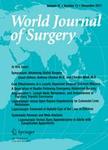版权所有:内蒙古大学图书馆 技术提供:维普资讯• 智图
内蒙古自治区呼和浩特市赛罕区大学西街235号 邮编: 010021

作者机构:Harvard Univ Brigham & Womens Hosp Sch Med Dept Surg Boston MA 02115 USA
出 版 物:《WORLD JOURNAL OF SURGERY》 (世界外科学杂志)
年 卷 期:2000年第24卷第6期
页 面:705-711页
核心收录:
学科分类:1002[医学-临床医学] 100210[医学-外科学(含:普外、骨外、泌尿外、胸心外、神外、整形、烧伤、野战外)] 10[医学]
主 题:身体成分 中枢神经系统/生理学 蛋白质类/代谢 脓毒症/代谢 应激 生理学/代谢 外科手术 伤口愈合/生理学 创伤和损伤/代谢 人类
摘 要:Severe surgical illness results in metabolic responses that mobilize substrate (amino acids and fatty acids) from body stores to support vital organs, enhance resistance to infection, and ensure wound healing. Central to this process is the redistribution of body protein, which moves From skeletal muscle to support the central viscera. If unsupported, this protein-wasting state could result in prolonged convalescence, diminished immunity, and poor wound healing. Present evidence suggests that the central nervous system plays a major role in regulating this protein catabolic response. Infusing exceedingly small quantities of the proinflammatory cytokines into the brain can mimic injury responses, and central cytokine blockade may be one therapeutic approach to attenuating these responses safely in the future. Additional evidence also demonstrates that the function of the hypothalamus and anterior pituitary is dampened during the later stages of severe surgical illness, and the possibility of hormonal replacement therapy needs to he explored.